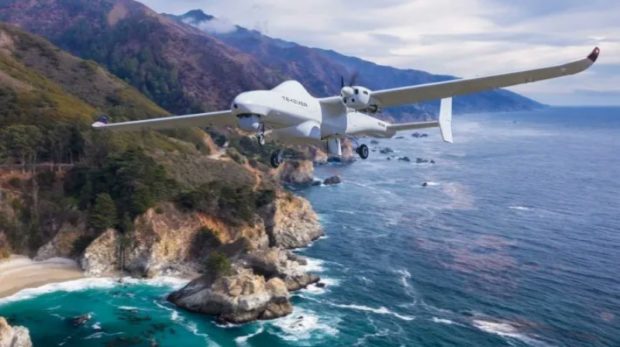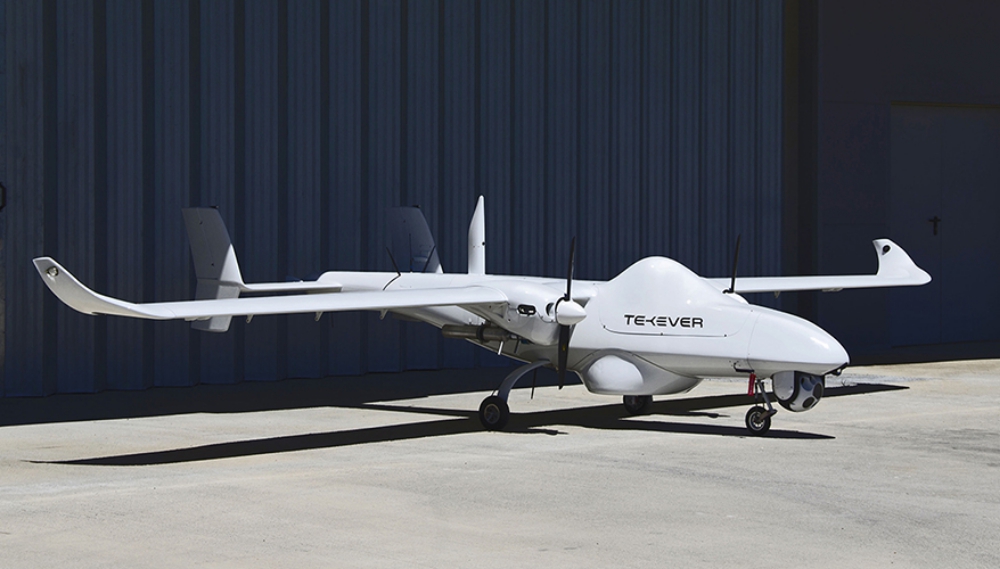Tekever, which makes AI-integrated drones specifically tailored to monitor and detect activity on the water, has raised €20 million (nearly $23 million at today’s rates). Ventura Capital led the round with participation from Iberis Capital and a number of unnamed strategic investors from the maritime industry. It will use the funds to hire more staff and continue to expand its technology.
Tekever – appropriately based in historic maritime superpower Lisbon, Portugal – was founded back in 2001 and has only been offering commercial services since 2018. But it’s been profitable for some time and expects annual growth of 60% over the next three years. In fact, this is the company’s first outside funding to double the expansion of its technology and sales to a broader set of organizations as business opportunities grow.
Tekever’s customers include governments and their agencies, who use the company’s services to monitor water bodies for illegal activity; and private shipping and other maritime companies, who use the drones to track weather patterns, water traffic, and other physical activities that could affect their businesses.
Tekever was founded by a team of intelligence and AI specialists, and co-founder and CEO Ricardo Mendes describes it as a vertically integrated company in which it designs and manufactures both its drones and the technology loaded on them to monitor and “read” them. what’s going on in the water below, and even predict what might happen next.
A vertically integrated drone company isn’t uncommon, but slightly more unusual is the order in which Tekever built its stack.
“We started from the opposite direction of every other company in the drone space,”
Mendes joked.
The company first set about developing the technology to read its terrain — bodies of water in its case — and then built drones fit for the purpose of making its software work. This included special antennas, sensors and power supply integrated into the body of the aircraft itself. (This also makes it essentially impossible for the software to work on other planes at this point.) The software, meanwhile, is designed to work with a mix of edge AI, satellite communications and cloud computing.
Building your own very custom drone hardware is difficult (and expensive). But that was on purpose, as it turns out. Tekever sells both components, but mostly operates its own fleet and sells drone-based surveillance services to users that run under the Atlas brand, which Mendes described to me as “intelligence as a service.” He said a special approach was taken to make his products as accessible as possible because his drones – with wingspans ranging from two meters to eight meters and flight times of up to 20 hours – were too expensive. unaffordable for all but the very largest customers.
“The question we wanted to answer was, ‘What do you need to do to make this easy and available around the world, not just for the richest nations?’” he said. “The drones are just part of the chain.”
Examples of how Tekever is used include both the European Maritime Security Agency (EMSA) and UK Home Office clients, as well as smaller African republics. They use the technology in a variety of ways to monitor their waters for vessels engaged in piracy, drugs, human trafficking, migrant smuggling, pollution, illegal fishing, or infrastructure security threats.
A recent report in the Guardian revealed how European government agencies are investing millions of euros in drones and other military technology to scale up their surveillance of groups of refugees, with the clear message that these investments do not discourage illegal migration, only encourage vulnerable people to do so take even riskier paths. Others in space like Anduril have arguably reaped huge financial rewards at the expense of their own controversy. But the CEO and founder of Tekever believes that his company not only fills a specific technical gap in the market, but that its commitment does more good than harm.
“When you’re talking about huge regions like the ocean, there are a lot of unknowns about what’s going on,” he said. Traditionally, organizations have relied on satellite imagery to get pictures of what’s going on in the water, but that’s not ideal as most satellite imagery is days old by the time a user sees it. “Fisheries, smuggling, human trafficking, immigration – these are all areas where real-time information is required. It’s not just footage, it’s the start of solving the problem. The goal is that you should be able to act before something bad happens” and because Tekever also uses predictive analytics to preview what is to come.
“We collect massive amounts of data to solve problems as they arise,” he said, noting that even five extra minutes for the response can make a difference because conditions in the water can change so quickly. For the UK Home Office, for example, he noted that a priority was identifying migrant boats in the English Channel in order to escort them ashore and avoid potentially tragic accidents. “The press focuses on the migration problem itself, but it’s a huge humanitarian problem,” he said.
Going forward, there’s a myriad – even a sea – of ways Tekever could advance its technology. Studying and understanding water bodies requires processing huge amounts of data, Mendes said, but that also gives the company a large number of datasets that could be used as well. It is not yet able to read submarine activity, which today requires lidar and radar on seagoing vessels to identify it; but that’s an area where it’s starting to develop. Another is to identify and classify oil spills, he said.
For now, Tekever remains focused on what Mendes described to me as “the blue economy,” but it’s also breaking new ground on… soil. His focus seems to be to keep trying to create new ways of looking at the most complicated of terrains. One area where he wants to do more is the forest, and the rainforest in particular. It invested in a Brazilian drone company, Santos Lab, a few years ago, gaining a foothold in that part of the world.
“Tekever is a very unconventional UAS company and a market leader with world-class technology, thousands of hours of operation, an experienced leadership team and a phenomenal and profitable business vision in a rapidly growing market,” said Mo El Husseiny, Managing Partner at Ventura Capital, in a statement . “These attributes have made it a flagship investment for Ventura, aligned with our portfolio of technological disruptors.”
“Tekever is one of the hottest European deeptech scaleups and we are very proud to continue working with the team and helping them revolutionize the global market,” added Diogo Chalbert Santos, Partner at Iberis Capital. “It’s amazing what Tekever has already achieved as a bootstrap company, and I’d say the sky’s the limit in this round.”
Source: TechCrunch


